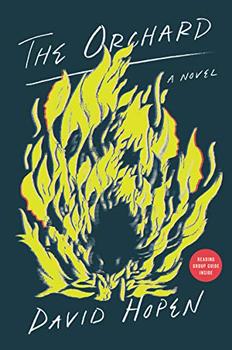Reading Guide Questions

Please be aware that this discussion guide will contain spoilers!
- Despite expressing skepticism, Ari and his friends consistently participate in Evan's experiments. To what extent is each member of the group accountable for the events that unfold? Does their participation reflect any genuine belief in Evan's theories?
- Rabbi Bloom involves himself in the lives of his students, revealing a particular interest in pairing Evan and Ari. Was Rabbi Bloom correct in likening Evan and Ari? And how do you view Rabbi Bloom's motives—is he sincere and well-meaning, or does he overstep critical boundaries?
- In the essay with which Ari applies to The Academy, he writes: "Happiness shall elude you, and yet you shall pursue it. We never reach permanent happiness, but we move steadily after its shadow, both physically and spiritually. We creep closer and closer toward God, each time halving the distance, but what we stand before is only an approximation. We move to new places, we visualize new achievements, but the yearning remains, because a life devoid of longing is not, in the eyes of the Talmud, a life fit for a human." Does this essay successfully encapsulate Ari's philosophy in life, or does Ari ultimately grow distant from these ideas? More broadly, does the content of the essay find confirmation or rejection throughout The Orchard? How you do relate to this notion of "yearning" in your own life?
- Ari's relationship with his parents evolves over the course of the story. How does the emotional structure of the Eden family change? In what sense is Ari similar to and different from his parents? Do these similarities and differences impact your understanding of the way Ari values family?
- Sophia plays piano in different contexts throughout the novel, both formally and informally, such as at Oliver's house party, the school recital and in her own bedroom. Do these performances register differently? In what ways does each performance offer insight into Sophia's character? If her music, as Ari suggests, functions as a means of escape, then how—and why—do other characters find ways to escape? Do they have a right to flee?
- evolution is continually analyzed—by his parents, by Sophia, by Kayla, by Evan and the others. Such scrutiny occasions moments of self-introspection during which Ari wonders whether he has surrendered fundamental aspects of himself or simply developed into the person he always hoped to become. Does Ari lose himself, or do his religious, social and intellectual decisions fulfill what he envisioned for himself while in Brooklyn? Are there specific inflection points that landmark Ari's spiritual journey? Do you think, in the end, that Ari will return to religion in some capacity?
- Within "the orchard," Ari and his friends experience life-changing visions. What might these visions represent? Does each character's response to the aftermath of the orchard alter how you conceptualize their personalities?
- The group spends considerable time studying foundational works of the Western canon, but does so under the guidance of a rabbi and within the context of a Jewish school. What is the interaction between religious and secular studies throughout the book? Do you think these two worlds enrich each other or prove incompatible?
- When Ari moves to Zion Hills, he is exposed to a previously unknown world of wealth. How does this dynamic come to bear on the story? In what ways are Noah, Amir, Evan, Oliver and Sophia shaped by their respective financial realities?
- The Talmudic myth of the rabbis entering Pardes looms over the novel. How do the different fates of those four rabbis find analogues—or revisions—in the five members of Rabbi Bloom's study group? Why is it that Oliver fails to join the others in entering the orchard? Is there a correlation between each character's role in the orchard and level of happiness? And how do you think such happiness measures against the happiness experienced by Shimon in the epilogue?
Unless otherwise stated, this discussion guide is reprinted with the permission of Ecco.
Any page references refer to a USA edition of the book, usually the trade paperback version, and may vary in other editions.

 Book Reviewed by:
Book Reviewed by:





